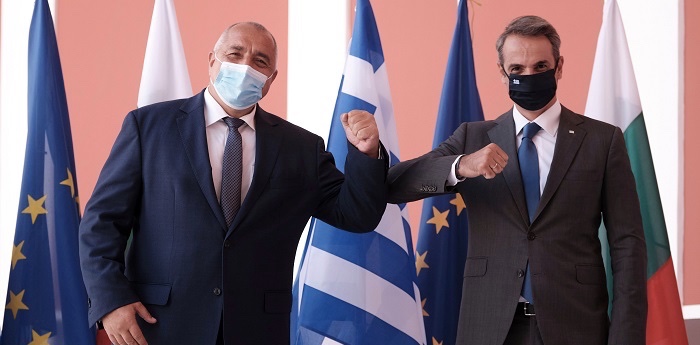The leaders of Greece and Bulgaria signed a deal on Monday that will allow Bulgaria to participate in a planned liquefied natural gas terminal at the port of Alexandroupolis in northeastern Greece.
The project, which has strong support from the United States, is aimed at boosting energy diversification in southeastern Europe, a region largely reliant on Russian natural gas.
“This large investment is set in motion with the ultimate goal of turning our easternmost port into a global energy hub,” Greek Prime Minister, Kyriakos Mitsotakis, said at the signing of the agreement in Athens.
“The port of Alexandroupolis is celebrating its 150th anniversary this year. It is becoming a hub of cooperation, a source of wealth and prosperity for the countries and for the peoples.”
The Greek leader added that the gas will be distributed to Greece, Bulgaria and the whole of southeastern and central Europe by the end of 2022 or the beginning of 2023.
“The benefits are also geopolitical: A new axis of diversification of natural gas routes is being created not only for Bulgaria but also for central Europe which will no longer have a single source of energy,” Mitotakis said.

On his part, Bulgarian Premier Boyko Borissov said the project is not only a bridging of the energy sources, but it helps both countries become main hubs and play a key role in energy and its distribution.
“We have reached a solution that satisfies all sides, both the investors and the partners. So we will be supplied with natural gas from every part of the world. All these flows will be feasible through the investment in this project,” Borissov said.
The project consists of an offshore floating, storage and regasification unit (FSRU) for the reception, storage and re-gasification of LNG, which will be stationed 17.6 km offshore the town of Alexandroupolis, as well as a gas transmission pipeline.
